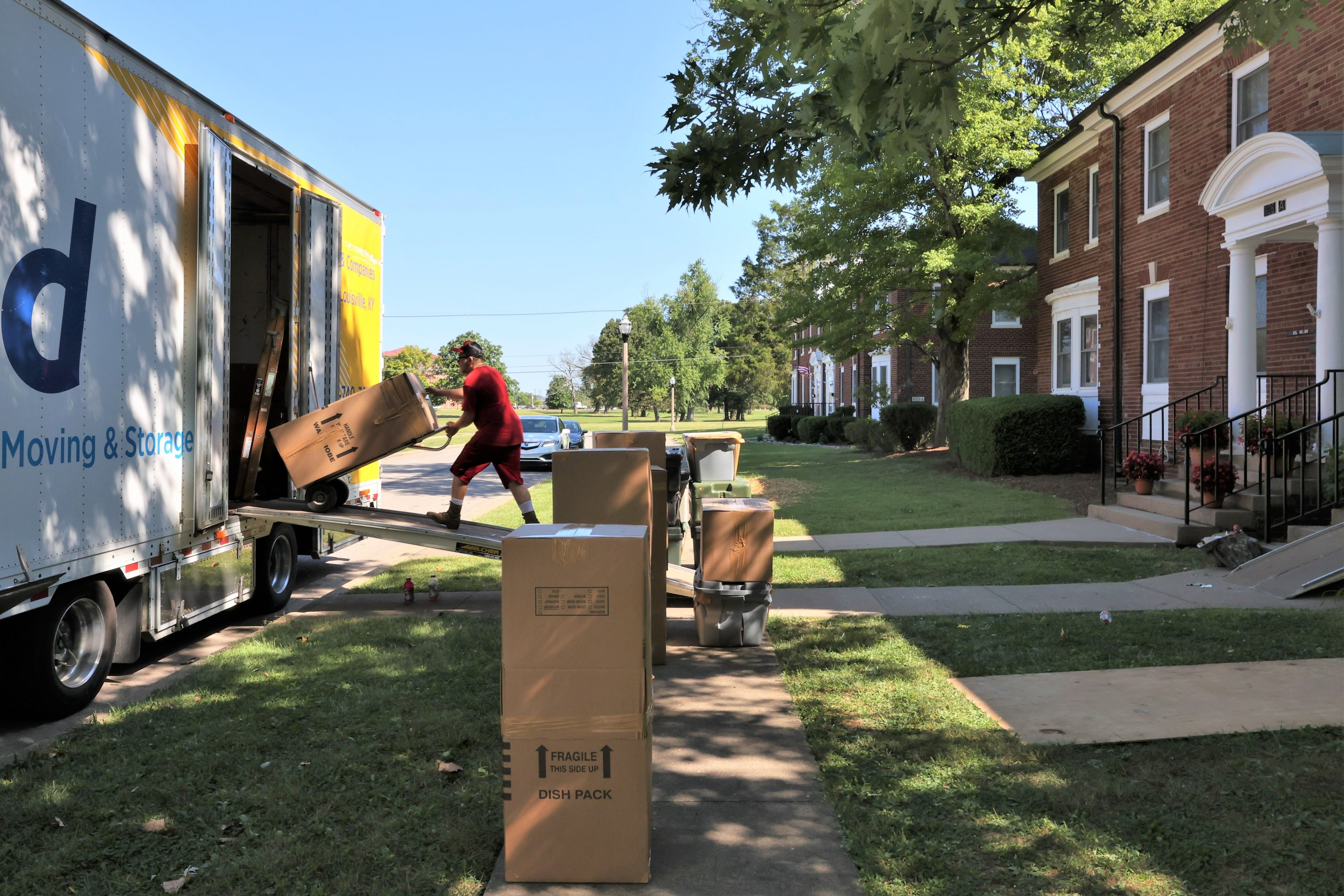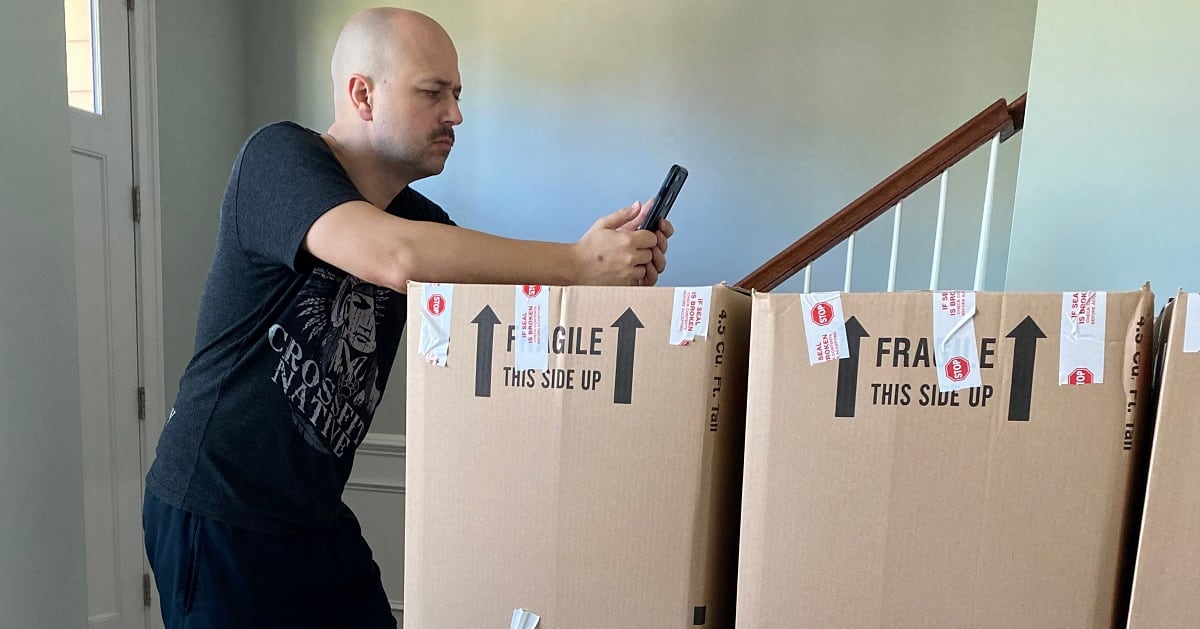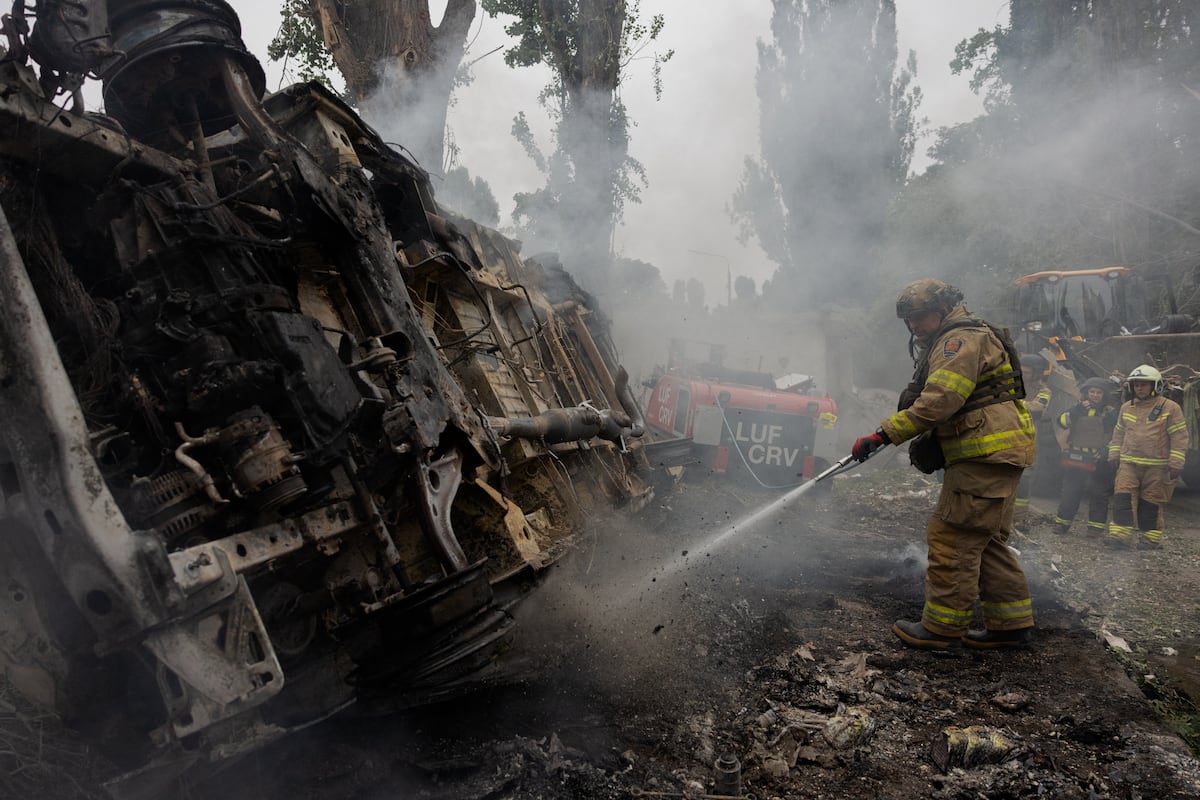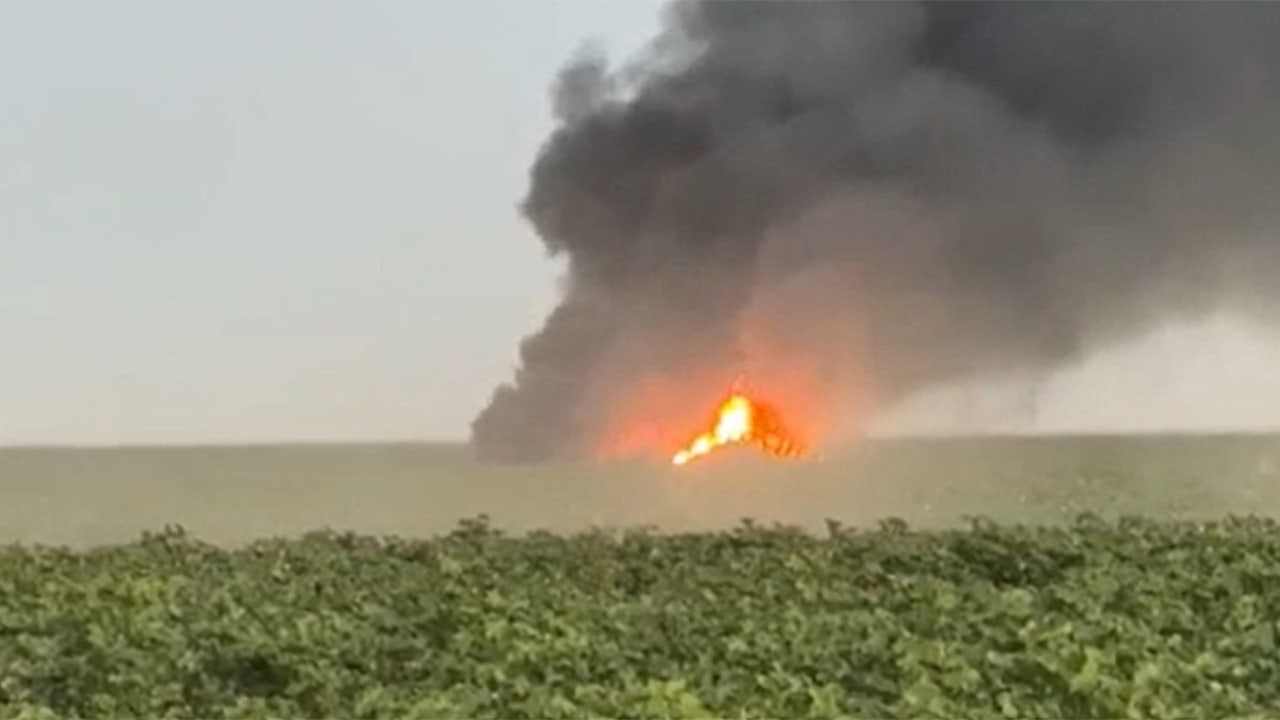Lessons learned from a military do-it-yourself move gone wrong
A military officer who lost more than $225,000 worth of household goods when his rental truck was stolen wants to warn other troops about how to protect their personal property as they move their belongings themselves.
When Air Force Lt. Col. Matthew Booth moved in July 2024, his rented U-Haul truck was stolen. While the truck contained $225,000 worth of Booth’s belongings, his insurance covered just $32,000 because of a mistake he made in reducing his coverage. Local law enforcement authorities in the Seattle area weren’t able to help him retrieve his property.
“I’m hoping to raise awareness about the possibility of rental truck thefts and help other service members avoid similar losses during PPMs [Personally Procured Moves],” Booth told Military Times.
This year, the percentage of personally procured moves is down, said Rebecca Riley, a traffic management specialist at the Defense Department’s PCS Joint Task Force. Service members decide to move all or part of their belongings themselves for a variety of reasons, including timing and flexibility — and because of the shortage of capacity in the DOD household goods shipment program over the last few years.
As troops weigh whether to move themselves, Booth wants them to know about the importance of adequate insurance and steps they can take to secure their rental equipment.
‘I was shocked’
Booth, a former Air Force fighter pilot who became a military orthopedic surgeon, was moving to New York City for a yearlong fellowship in 2024. He chose to do PPMs for both himself and his wife because it was just simpler, timing-wise.
“Waiting on a military mover at that time was tough,” he said.
He and his wife were both moving from their orthopedic surgery residency programs in St. Louis to fellowship programs. She was moving to Seattle. They divided their household goods to move to the two locations; driving his pickup truck from St. Louis to New York for his partial PPM move, then flying back to St. Louis to load her U-Haul and Jeep to head to Seattle.
When they reached the Seattle area, they stayed at a hotel in a small town outside the city and parked the U-Haul in an overflow parking lot. The next morning, the truck was gone.
“I am 4th generation military, and I have done U- Hauls my entire life. I have moved all across the US and the world. I’ve taken U-Hauls everywhere, driven them as a kid, you name it. This is the first time I’ve ever seen this,” Booth said.
“I was shocked. This is coming from somebody who takes a lot of care to hide things and lock things and move things around. It blew my mind that they would just break in and drive it away.”
While renting the truck in St. Louis, Booth became “real nervous,” he said, when the U-Haul employees told him they’d had nine trucks stolen that very day in mid-July.
So, Booth took precautions. He parked the empty U-Haul at Scott Air Force Base while waiting to load. After loading, he parked it at the base again before leaving for Seattle.
“I bought a big padlock for the back of the truck, one of the indestructible round ones, real challenging to get into, pick or to cut,” he said. “Then we would always park it in a well-lit area, right up front of the hotels we stopped in.”
Before parking in the overflow lot outside the hotel near Seattle, hotel staff required Booth to put his phone number on the dash of the truck.
Later, a construction worker found that number and called to tell Booth his U-Haul was in the middle of a field.
“That really stunk,” Booth said.
Dead-end investigation
Booth, an avid competitive shooter, had been collecting guns for about 20 years. The truck contained about $85,000 worth of guns, ammo and equipment, among other belongings.
“It was really sad, because they’re some of the highest accuracy weapons for competitive shooting, and now they’re in the hands of some drug addicts and criminals out there,” he said.
After the theft, Booth called the FBI and Bureau of Alcohol, Tobacco, Firearms and Explosives to give them the serial numbers of the guns.
Booth is also a photographer and lost about $65,000 in camera equipment, as well as bikes, scuba gear, computer equipment and numerous kitchen electronics.
“The cab of the U-Haul was littered with crack pipes and beer bottles. If they didn’t take stuff, they destroyed stuff,” by burning, breaking and urinating on items, he said.
RELATED

As for the padlock, the thieves “just sawed a hole around” it, he said.
Later, Booth viewed security camera footage that showed somebody coming up to the U-Haul in the middle of the night. Within a few seconds, the person opened the door to the cab. They drove away with the U-Haul less than a minute after approaching it.
Booth had trackers on some of his items, including some high-value weapons, and he could see the locations where the thieves had taken them. One law enforcement officer told him the area was so dangerous, police couldn’t send officers to knock on the doors.
“He said, ‘Your personal property isn’t worth our officers’ lives.’ I understand that,” Booth said.
Booth has been in contact with local law enforcement several times over the last year, but he has so far been unsuccessful in getting back any of the stolen property.
Few details on truck thefts
U-Haul spokesperson Jeff Lockridge told Military Times that the company sympathizes with any customer who is a victim of theft and employs a “robust investigations unit that works closely with law enforcement to see that individuals engaged in criminal activity involving U-Haul equipment are captured and brought to justice.”
“U-Haul learns of all reported thefts involving our equipment,” Lockridge said.
However, the company doesn’t make those records publicly available and didn’t provide details about how often thefts occur.

Although U-Haul is one of the largest truck rental companies, there are a number that provide the service. Despite their ubiquitous use, there’s scant information collected about thefts involving the trucks.
Information was unavailable from national crime databases about the frequency of rental truck thefts.
The Truck Renting and Leasing Association, an organization representing a range of rental and leasing companies, doesn’t collect or track theft-related data, said spokesperson Shannon Davison.
A lesson in insurance
Before leaving St. Louis, Booth canceled the insurance policy on their Missouri apartment and lowered the coverage amount for the valuables they were taking to Seattle.
“I did have a policy on the new apartment that USAA honored. It was just lower,” Booth said.
USAA paid the full policy value, $32,000, but Booth and his wife had lost more than $225,000.
“It was a mistake on my part, putting the bigger policy on the location with the smaller value items,” he said. “That was a bonehead move, because I moved all the expensive stuff out to Seattle last minute and didn’t think about it.”
Booth, who has been in the Air Force for 26 years, said he’s lucky to have a job in the military that pays well. He plans to replace his lost items over the next decade but acknowledged many other service members might not have that ability if it happened to them.
If you’re doing a PPM instead of a government move, the government isn’t liable for any loss or damage to your property, said Andrew Femath, a spokesman for USAA. Femath advised that service members ensure they don’t have a gap in their insurance coverage for their personal property.
Before canceling or changing a policy, troops should call their insurance company to let them know they’re moving, Femath said. Service members should also share their plans for the move so the company can confirm when and how their coverage will apply if their belongings are lost or damaged in transit.

Booth wasn’t liable for the stolen, damaged truck because he’d purchased U-Haul’s highest insurance option. The coverage applied only to the equipment, not for Booth’s belongings inside the truck.
Most auto insurance policies don’t cover rental trucks and trailers, so the renter is responsible for any damage or theft if they don’t purchase a policy through the rental company.
Tips for avoiding theft
Thieves are getting more brazen, and rental trucks spotted in hotel parking lots are assumed to be full of belongings. Both Booth and U-Haul shared tips for service members about how to keep their items safe:
- If you know you’ll be spending the night somewhere along your route, call the hotel and ask if they have parking available for rental trucks. Also inquire about whether the area is well-lit and if there are security cameras within view.
- Avoid leaving trucks parked and unattended in areas where crime is prevalent.
- Don’t leave keys in the truck. Lock the doors to the cab and place secure locks on the rear cargo doors of the truck or trailer. Also place secure locks on the chains connecting towed trailers to vehicles.
- Back up the U-Haul or trailer close to a garage, wall or other solid barrier so someone can’t unload the contents without moving the truck.
- Remove the circuit breaker when leaving the truck unattended, so the truck is inoperable. It’s in the cab of the truck, generally near the driver’s seat or under the dashboard.
Other tips for DIY moves
The PPM option, formerly known as do-it-yourself moves, ends with a service member receiving a payout based on what the government would have shelled out to a moving company, calculated using the weight of a service member’s belongings and the authorized distance from origin to destination.
Despite his experience, Booth said he was satisfied with the process of his PPM — and the payout he received.
RELATED

“You’re not going to make money on it, but you’ll have access to your stuff when you need it,” Booth said. “For some folks like me, I only have a few days, as a surgeon. The hospitals are always screaming for you to get in there.”
Booth and military officials shared tips for troops who decide to use the voluntary program:
- Troops should ensure they are following the rules set by their service branches for PPMs in order to get the reimbursement they’re owed. That starts with making an appointment at a personal property office to learn the rules and requirements.
- Service members should expect to weigh their belongings. Part of the process includes going to a certified weigh station to weigh the truck when it’s empty, and then again after it’s loaded. Some services require troops to do this multiple times, said Rebecca Riley, a traffic management specialist at the PCS Joint Task Force.
- Don’t forget the receipts. Riley advised troops to maintain receipts for all expenses during a PPM.
Karen has covered military families, quality of life and consumer issues for Military Times for more than 30 years, and is co-author of a chapter on media coverage of military families in the book “A Battle Plan for Supporting Military Families.” She previously worked for newspapers in Guam, Norfolk, Jacksonville, Fla., and Athens, Ga.







